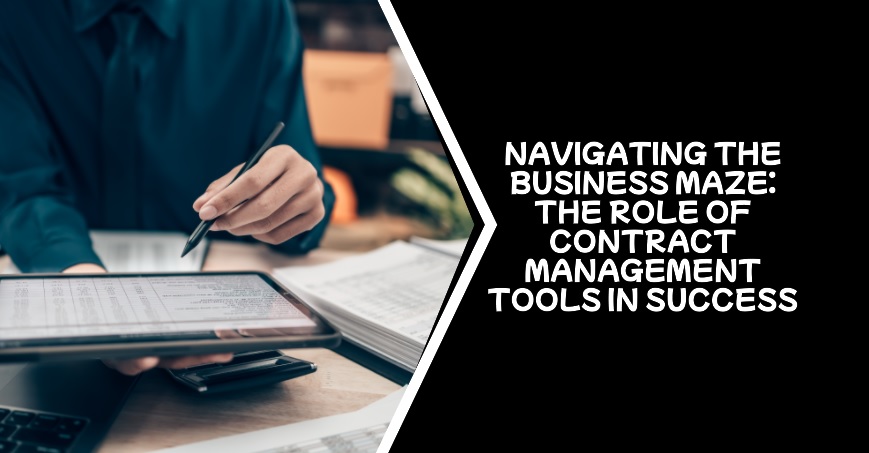Contents
Are you tired of getting lost in the intricate web of business contracts? Look no further.
In our article, ‘Navigating the Business Maze: The Role of Contract Management Tools in Success,’ we reveal how these tools can guide you through the labyrinthine world of contract negotiation processes, ensuring compliance with legal requirements and protecting your business interests.
By leveraging data and analytics, these tools empower you to make informed decisions that will lead to success.
It’s time to conquer the maze and unlock your potential for growth.
Streamlining Contract Negotiation Processes
You can streamline your contract negotiation processes by using a contract management tool. These tools offer a range of features that can help automate workflows and improve efficiency.
By utilizing these tools, you can eliminate the need for manual document creation and tracking, reducing the risk of errors and delays. Contract management software allows you to easily create templates and standardize contract language, saving time during negotiations.
With automated reminders and notifications, you can stay on top of critical deadlines and ensure timely completion of contracts. Additionally, these tools provide real-time collaboration capabilities, allowing multiple stakeholders to review and comment on documents simultaneously. This not only speeds up the negotiation process but also ensures transparency and accuracy in communication.
Overall, incorporating contract management tools into your workflow can greatly enhance your contract negotiation processes by automating workflows and improving efficiency.
Ensuring Compliance with Legal Requirements
Ensuring compliance with legal requirements can be aided by the use of contract management tools. These tools provide businesses with the necessary means to effectively manage and track legal documentation, ensuring that all regulatory obligations are met.
By using contract management software, businesses can automate the process of monitoring and maintaining compliance with legal requirements. The software can track important dates, such as renewal or termination deadlines, and send reminders to ensure timely action. It also allows for centralized storage of contracts and related documents, making it easier to access and review them when needed.
Additionally, contract management tools often include features that enable businesses to generate reports on their compliance status, providing a comprehensive overview of their adherence to legal regulations. With these tools in place, businesses can minimize the risk of non-compliance and avoid potential penalties or legal issues.
Mitigating Risks and Protecting Business Interests
To mitigate risks and protect your business interests, it is important to have a clear understanding of legal requirements and implement strategies that align with them.
One way to achieve this is through conducting a comprehensive risk assessment. By identifying potential risks associated with contract management, such as non-compliance or breaches, you can proactively address them before they escalate into bigger issues.
Additionally, contract performance plays a crucial role in mitigating risks and safeguarding your business interests. Utilizing contract management tools allows you to track key performance indicators, monitor deadlines, and ensure that all parties involved are fulfilling their obligations.
These tools provide transparency and accountability throughout the contract lifecycle, minimizing the chances of disputes or financial losses.
By actively managing contracts and implementing effective risk mitigation strategies, you can protect your business interests while ensuring compliance with legal requirements.
Leveraging Data and Analytics for Improved Decision-Making
Leveraging data and analytics can provide valuable insights for better decision-making in contract management. By harnessing the power of data-driven insights, you can gain a deeper understanding of your contracts and identify potential risks or opportunities. With predictive modeling, you can anticipate future outcomes and make informed decisions to protect your business interests.
Data-driven insights allow you to analyze historical contract data, identify patterns, and make more accurate projections for future negotiations. This enables you to negotiate favorable terms that align with your business goals and mitigate potential risks.
Predictive modeling takes it a step further by using advanced algorithms to forecast various scenarios and their potential impact on your contracts. It helps you assess the likelihood of different outcomes, allowing you to proactively address any issues before they arise.
By leveraging data and analytics in contract management, you can enhance your decision-making process, minimize risks, and maximize the success of your business endeavors.
Conclusion
The role of contract management tools in business success cannot be overstated. These tools can help streamline processes, reduce errors, and improve communication and relationships with clients and partners.
From tracking deadlines and obligations to managing contracts across multiple locations and departments, the right contract management tool can provide a centralized platform that improves transparency and accountability. By investing in such tools, businesses can enhance their efficiency and achieve better outcomes, ultimately leading to long-term success.


